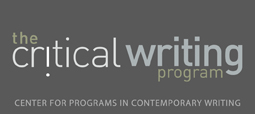Chemistry
An Overview of the Discipline
Chemists study the composition of properties of substances and elementary forms of matter. Research conducted at Penn within the sub-disciplines of chemistry include: synthesis and characterization of compounds and materials, chemistry of life processes, nanoscale materials and molecular devices, chemistry of the environment, and energy and the hydrogen economy. Subdisciplines include theory, simulation, and modeling (organic chemistry), laser Chemistry and spectroscopy (inorganic chemistry), nanoscale science and engineering (biological chemistry), materials chemistry (chemical physics and physical chemistry), and chemical catalysis (biomolecular imaging).
Writing in the Discipline
Reasoning
Writing in chemistry is explanatory and aims to define problems and provide solutions. For example, problems in biological chemistry can aim to find the chemical basis for biological processes that are not well understood. Reasoning is very objective as chemists synthesize evidence to present their findings and draw conclusions. Sometimes, definite conclusions cannot be reached based on the data collected so a hypothesis may be proposed along with possible experiments that address this hypothesis.
Evidence
Evidence is largely quantitative data and measurements from studies. Qualitative observations and analyses may also be used as evidence and can still be important. Examples of acceptable qualitative evidence include yes or no answers to specific questions such as, what properties does this cell have? What phenotypes are exhibited? How does protein X interact with protein Y?
Many subfields involve collection of both quantitative and qualitative data, but a given study may emphasize one type of evidence of the other to support a hypothesis. Examples of legitimate evidence include analysis and interpretation of novel structures. The relevance of evidence to the experiment's goals and hypotheses is very important because writing relies on this evidence and how it was collected in the first place to support a proposition.
Goals
As in other scientific fields, the main goal of writing in the field of Chemistry is to share results with others. Communicating ideas effectively to other scientists, and even to nonscientists, is crucial for adding value to research.
Authorship
Chemistry research is collaborative within research groups but groups work individually for the most part. Writing may be co-authored or individual.
Writing Tips
Important Criteria for Student Writing
The four most important aspects of writing are demonstrating mastery of others' ideas, reasoning and evidence, synthesis of sources/ideas, and having original ideas. Mastery of others’ ideas provides the foundation for new experiments, which work with original ideas to lead to new results. Synthesis of sources/ideas is important for understanding how new results fit within the context of previously published work. Reasoning and evidence requires that students exhibit a breadth of knowledge in the field. Finally, citations play an important role in furthering these goals. Citations provide the basis for conducting an experiment to advance beyond previously published work and help the reader distinguish between the writer’s new work and previously published works.
Student Writing Process
The process involves the student providing an outline, and then the 1st draft. Next, researchers do the experiment. You are allowed to divert from a hypothesis after conducting the experiment (which means changing your proposition).
Students writing research proposals should define the problem, discuss why it's important that people should care about the problem, and then describe a solution to the problem, the importance of solutions, and its future implications.
Common Errors
Errors are both conceptual and cosmetic. Conceptually, Chemistry professors identified that students do not always understand where their experiments and research could go wrong and make note of this in their writing. Identifying the proper control in experiment explanation is also a common error. Cosmetically, a common student error is found in the usage of 'datum' vs. 'data'.
Style
In general, scientific writing must be concise and clear and this is especially important in Chemistry. Specifically in writing papers, following the IMRD (Introduction, Materials/Methods, Results, Discussion) structure helps explain the process of the experiment. The structure must be such that other scientists are able to recreate the exact same experiment. When writing the introduction, consider a synthesis of previous experiments (including citations), audience, and the inverted pyramid structure (general to specific). In the discussion section, consider discussing further improvements to current experiments or suggestions for future experiments.
Genre
Student Assignments
Assignments for graduate students include research papers and problem sets. Examples of typical graduate assignments include X-ray crystallography problem sets and final paper submissions from lab work. General undergraduate assignments include lab reports and problems sets, with research papers in advanced level courses.
Professional Writing
Professional writing in Chemistry includes, but is not limited to, scholarly articles, reviews of papers, grant proposals and nominations for the Nobel Prize.
Additional Resources
The following link has a list of Penn Chemistry professors, labeled with their respective areas of focus, with selected publications and specific topics of research.
http://www.chem.upenn.edu/people© 2013-2014 The University of Pennsylvania
Meet the Professors

David W. Christianson
Dr. David Christianson is the Roy and Diana Vagelos Professor in chemistry and chemical biology. He also teaches Biological Chemistry. More...

Ronen Marmorstein
Dr. Ronen Marmorstein is a professor and program leader of Gene Expression and Regulation Program at the Wistar Institute. He is also a professor of chemistry and biological chemistry at the Wistar Institute. More...
